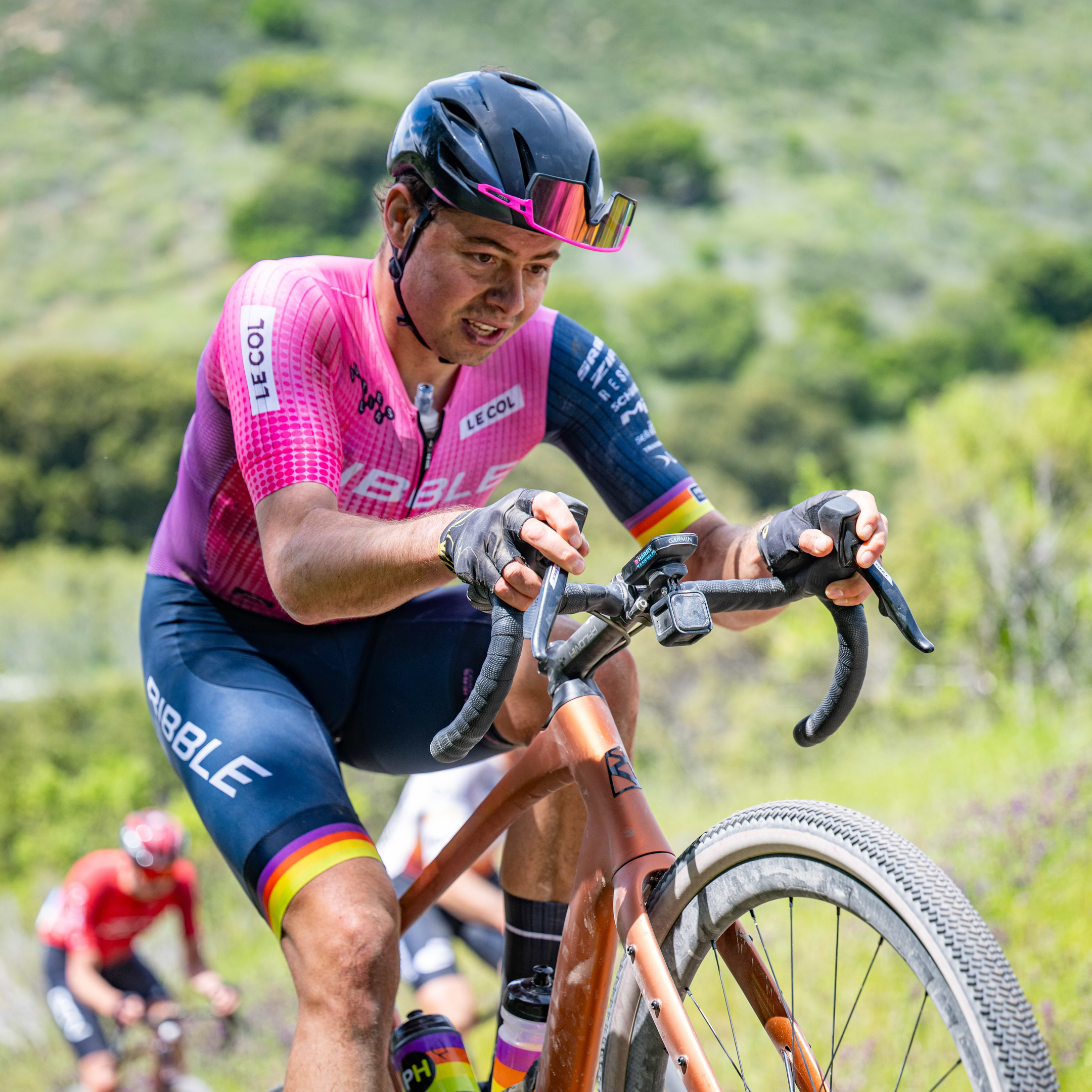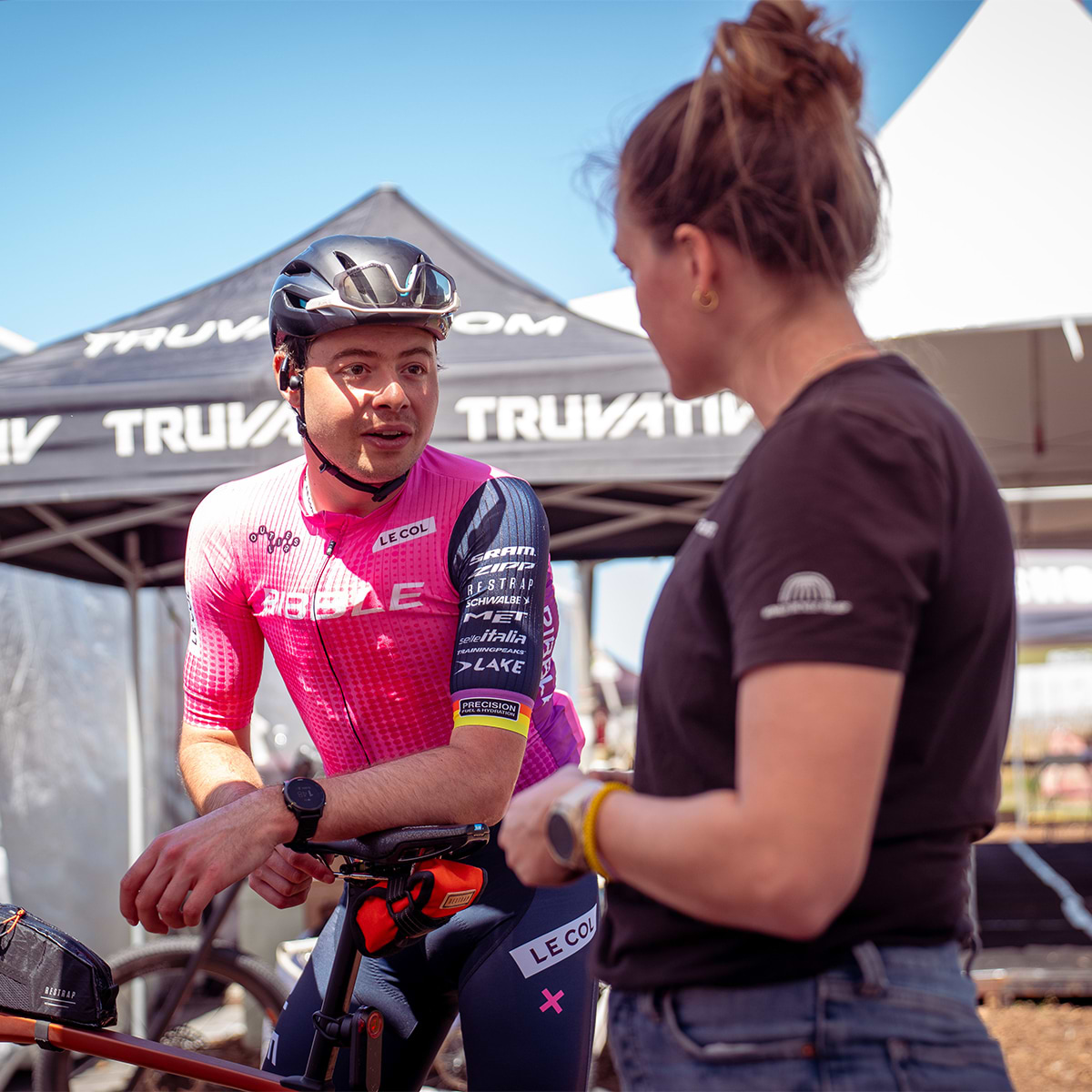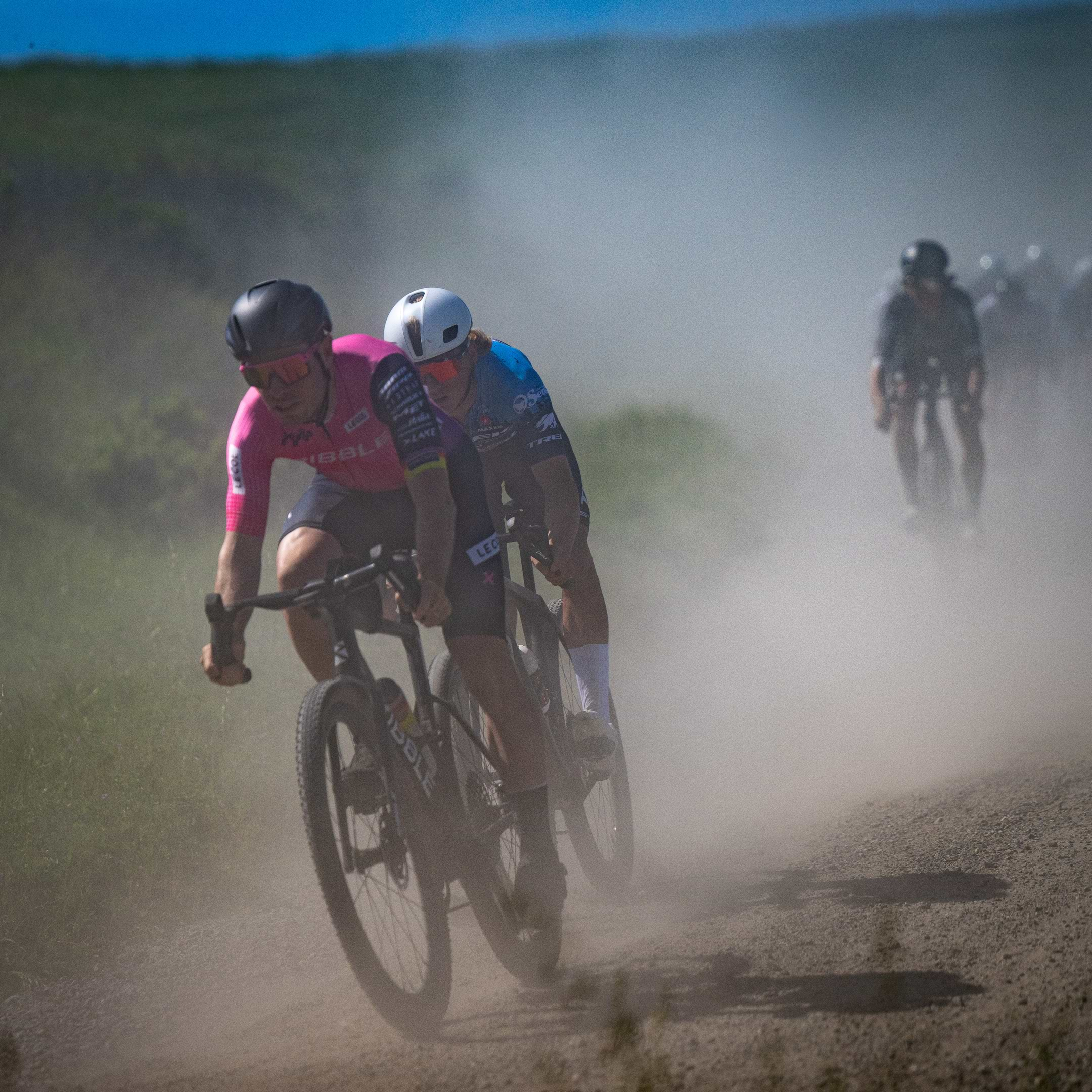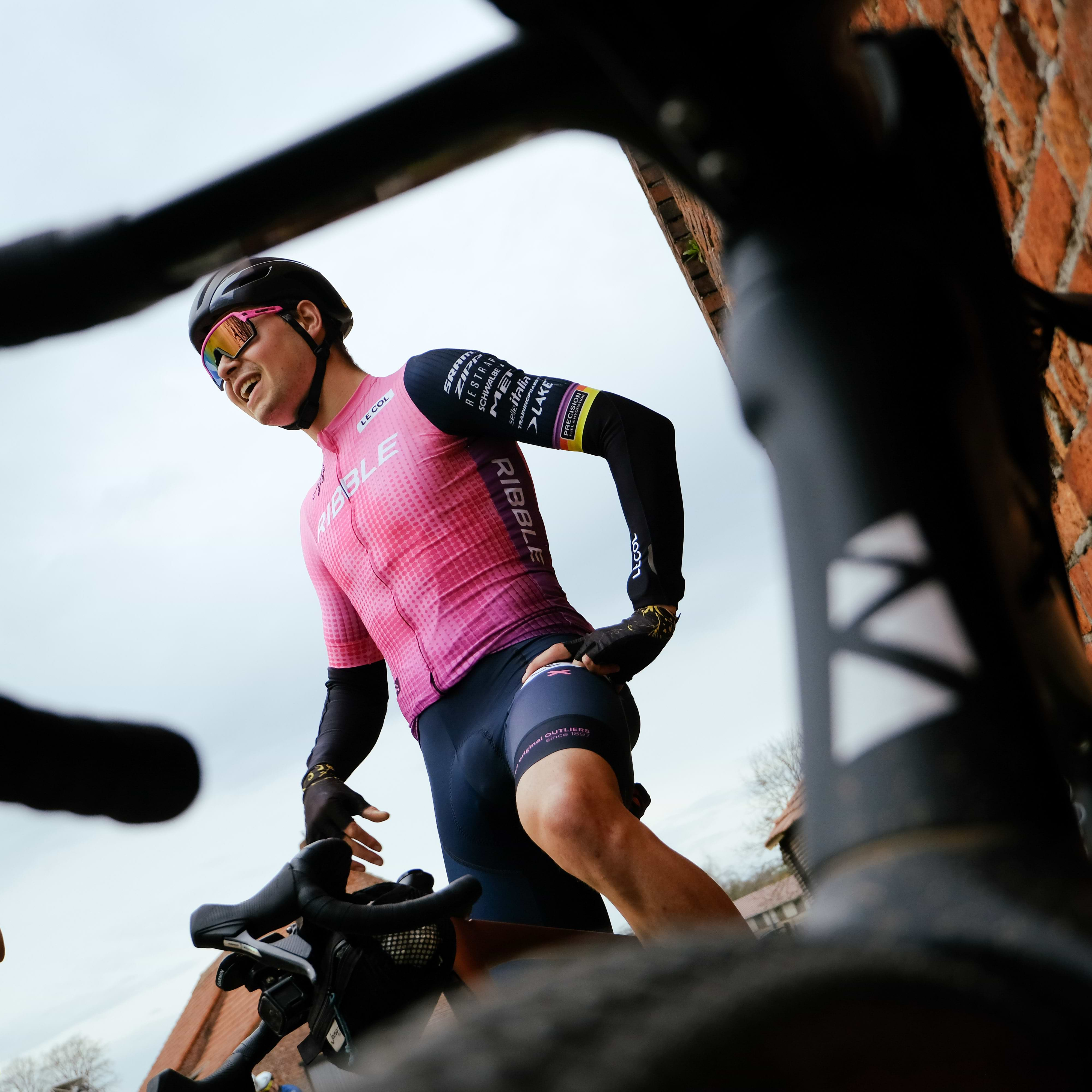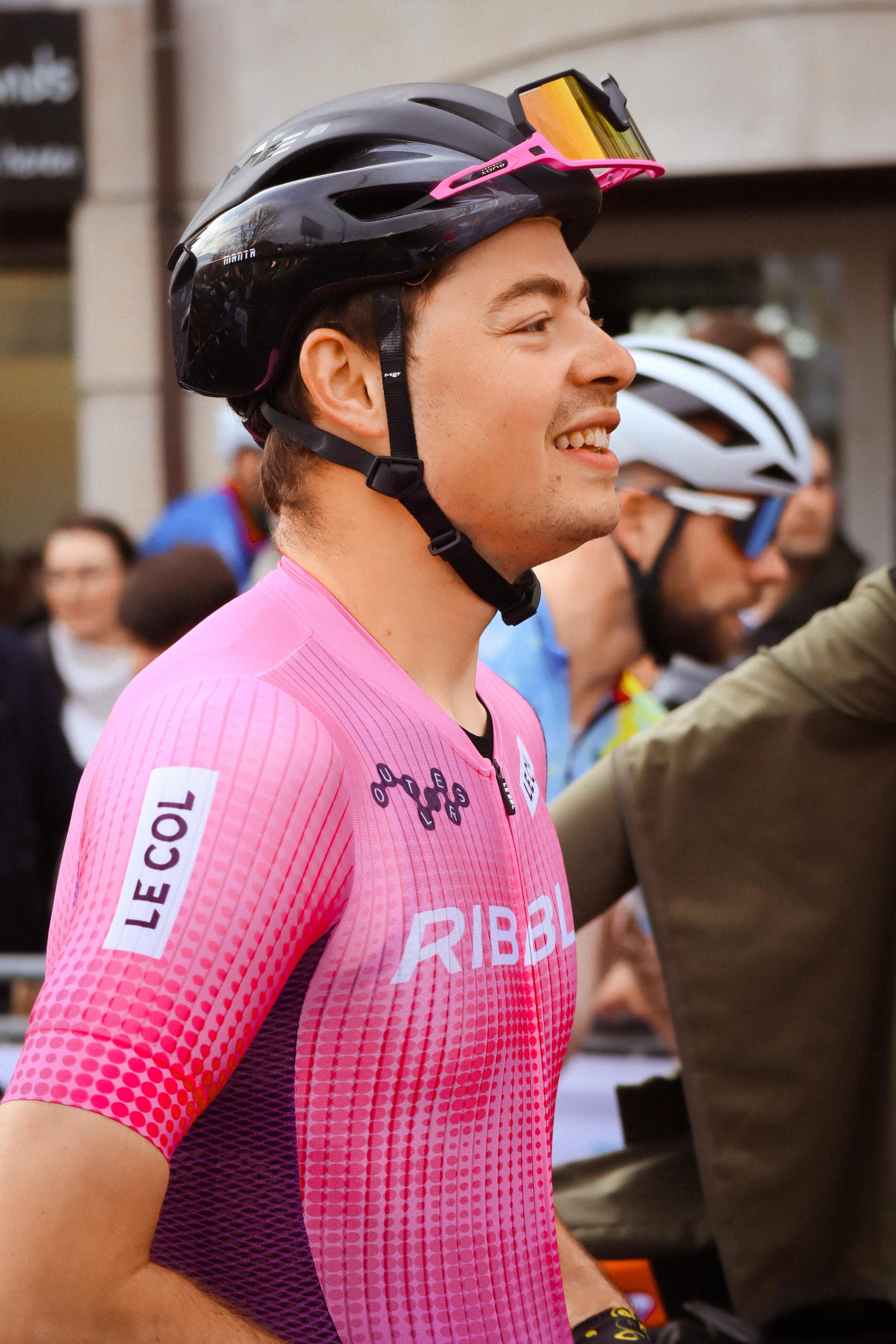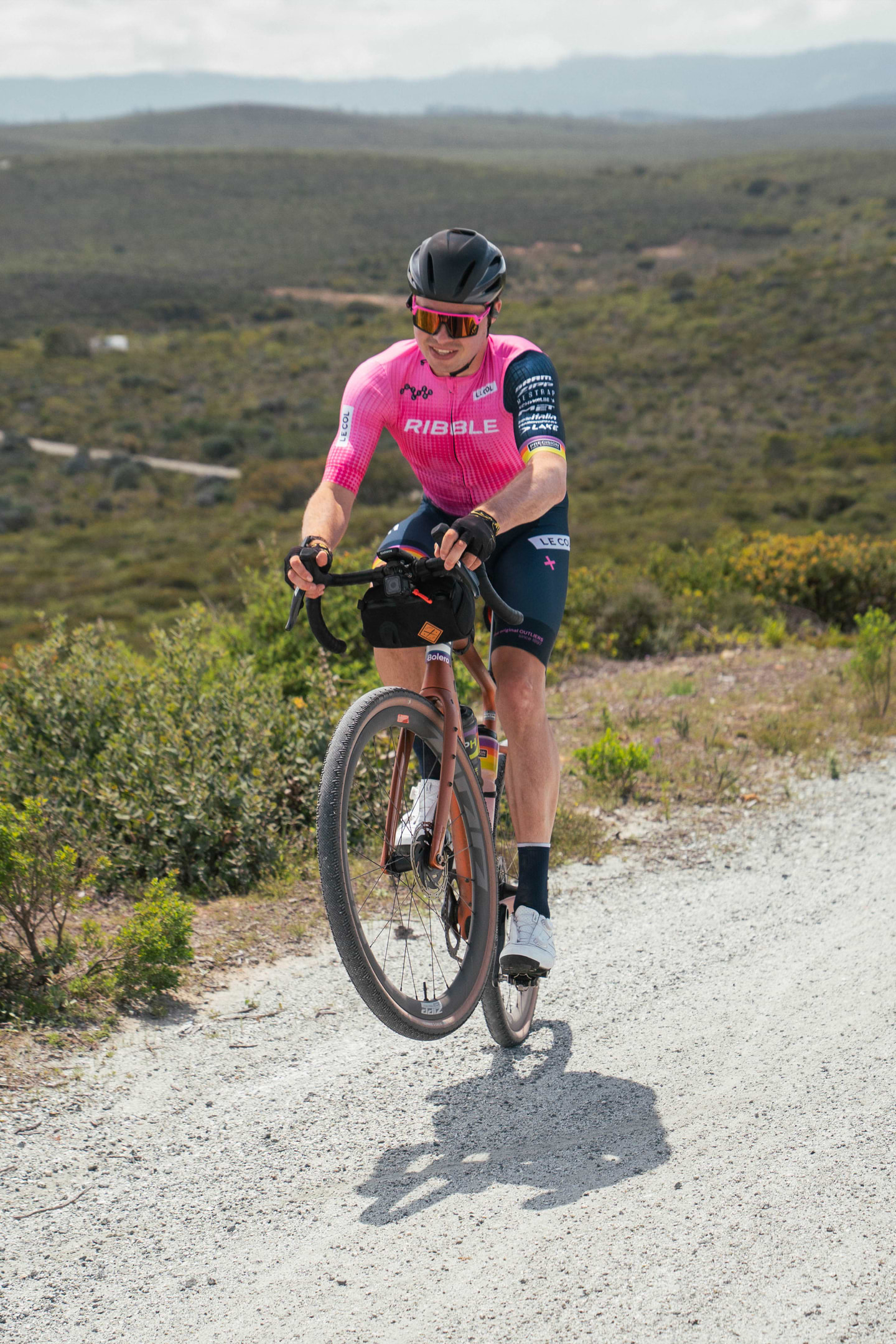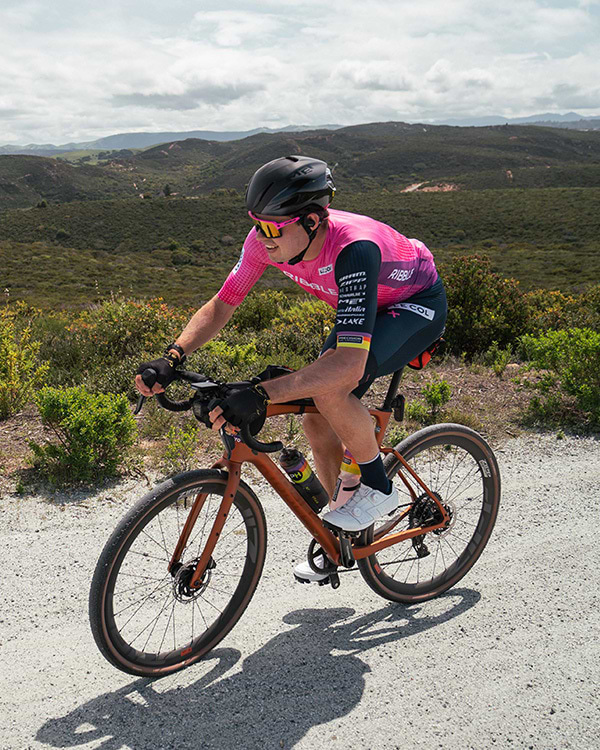
Harry Tanfield brings a wealth of experience to the Outliers - a Commonwealth Games medallist, stage winner at the Tour of Yorkshire, and a former WorldTour pro. But he's now stepping up to a whole new challenge. We caught up with Harry as he prepares for his first season as a Gravel pro to discuss what racing for the Outliers means and his goals for the new year.
1. Coming from a career of road and track racing, what were your standout moments from then?
I guess I’ve been around the block - I’ve competed in different events and disciplines worldwide. Personally, I really enjoyed the World Cup track races we did as part of a UCI track team together with friends, winning medals and beating federations with 100x our budget. Then again, I have a lot of great memories from the road too — from my first UCI win in Asia to competing in the Yorkshire World Championships and coming home with a medal.
There have been so many great times over the years. Even before I turned professional, racing in the UK Conti scene in the Tour Series, etc., I enjoyed those, especially with the fun team environment we had then. The sport has changed a lot from 7–8 years ago, that’s for sure.
2. Why did you gravitate towards gravel after years of road and track?
It’s something I’ve looked at from the outside over the past year, thinking, “I’d love to give that a shot.” Over the years, gravel sectors or unpaved roads have been included in more and more road races, and I always loved doing those. So naturally, I thought, “Well, I have an opportunity here to try something new.”
I could stay and race as I have done the last few years or take the jump into something completely different. I think it was too good an opportunity not to miss. It’s a big commitment having never done a gravel race before, but after my first race in Belgium, I know I made the right decision.
3. What does it mean to you to now be part of the Ribble Outliers?
It’s great that Ribble wants to be a part of the gravel scene - it's growing year on year, and there are more “teams” or collectives of riders forming in the sport. So, for me, it’s great to be part of a small team where we all get on well.
Ultimately, gravel is more individual than road racing, but bringing in that team ethos, like we have in the first races — looking after each other before and during a race weekend, I think, is nice. Even if it's just the small things. We have got such a vast range of experience in the team, from across gravel, MTB, and cross. For me, especially, it’s a bank of information to help me get started. I’d honestly be lost without their input, as I’m a complete rookie here!
4. How different is your mentality now compared to when you were racing at World Tour level?
It is a little different, I guess. In the WT (World Tour) you generally have an assigned role within the team. Or I did, at least. Unless you’re one of the top dogs bringing home the silverware, you’re normally working for others. When opportunities come, they’re often few and far between, so you’ve got to take them when they arise. With gravel racing, every race is an opportunity for a result, depending on the course a little. But it gives you free rein to race it your way, and I like that.
It doesn’t matter if it’s road or gravel, the level is always high at the top end of the sport. For me personally, I want to be physically at my best. After having the Epstein-Barr virus last year, I never quite managed to get back into top shape. But now, I want to get back to the condition I know I’m capable of. I want to do the best I can in the races that suit me most. In the ones where I know the terrain’s just too technical, I’ll still give it my all to gain valuable experience and continue to grow as a gravel racer.
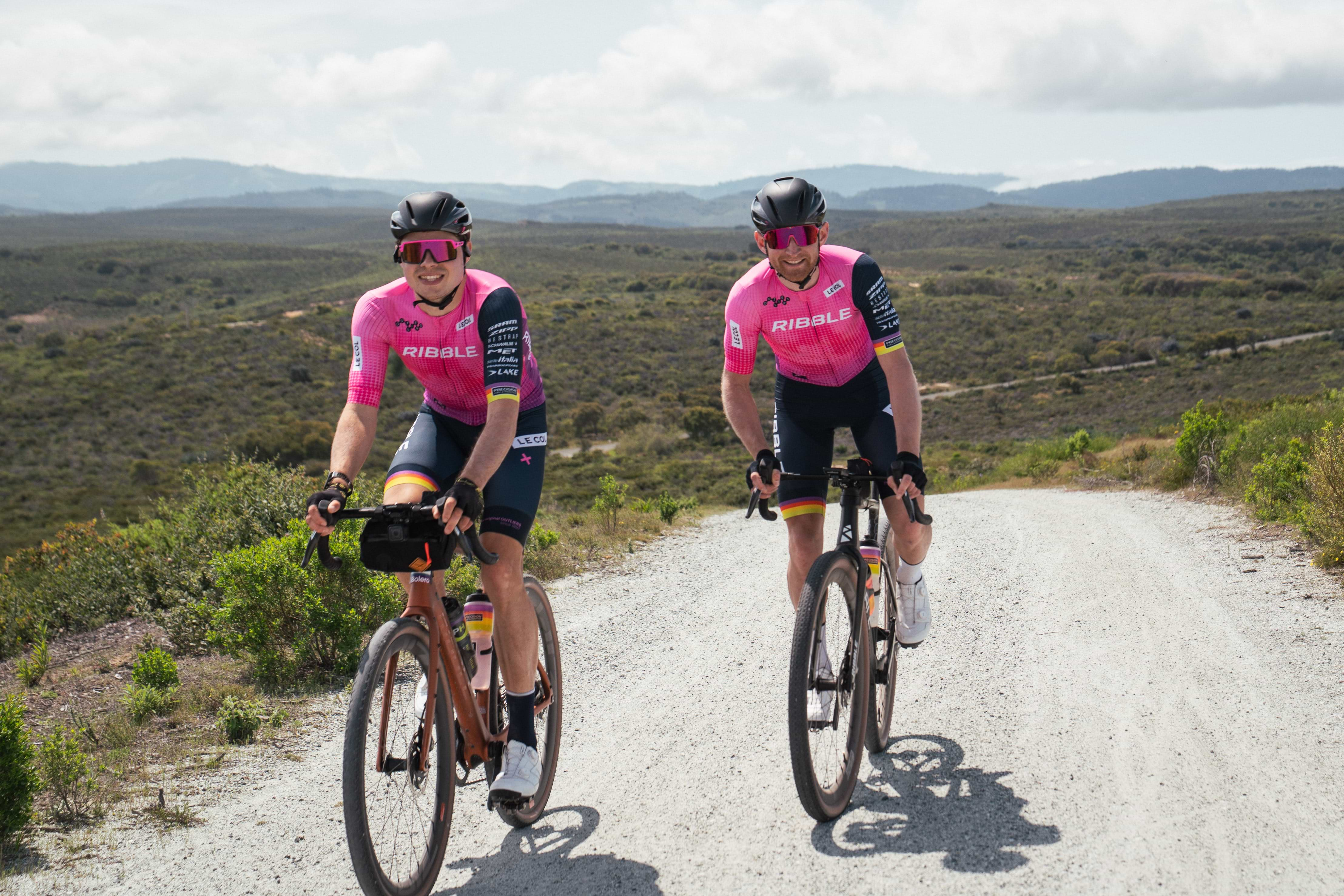
5. Are there any skills or lessons you picked up from the road that you think give you an edge on gravel?
It’s kind of funny approaching gravel races with that road race mindset — but for me, it’s all I know. For some of the others in the team who have only done gravel, they wouldn’t think like that. It can be equally good and bad. But I think it can help in some ways — especially at the start of these races when it’s a big peloton etc.
Being able to move around the bunch and get into the right position when there’s singletrack coming up — I suppose it’s something you learn over the years in road racing. If there’s going to be a windy section or a key climb, you’ve got to be in the best position possible. For the hillier, harder races, I think it matters a lot less — those are just about mashing the pedals as hard as you can for hours on end!
6. What does success look like for you now?
For me, coming into gravel with no experience, I have no idea what I’m capable of in these races. I’d love to podium in a UCI gravel race, but obviously, the level is super high! You've got to have a goal, though. For the longer races — I’ve never raced over 5 hours, never mind the 7–9 hours some of our races will be — so it’s a total unknowable. It’ll be an adventure, to say the least!
7. Does your training look different now that you're taking on a new discipline?
For me, changing up the race program — I wouldn’t say I changed much in the winter other than my coach. But the usual winter prep work was similar to other years. Because I missed all of winter and the start of the season last year, it feels different — but that’s only because it’s been so long since I’ve had that solid, consistent block. I’ve got a long way to go and I know it.
It's one thing holding strong power for 3–4 hours, but another thing entirely for 6–7 hours. It’s a bit of a long process, but I know if I get the basics right and get back to the shape I know I can reach, (which I didn’t in 2024) then that’s a great platform to build from. I definitely need to increase my fatigue resistance and durability, but that’ll come. You can’t build a house on shaky foundations, so really just getting the basics right first is the most important thing.
8. Has anything about gravel racing surprised you so far?
How fast it is! I mean, I can only talk from one race. But I couldn’t believe how fast the peloton was riding on those gravel trails. Seeing 45–48kph with rocks flying everywhere in the bunch was pretty crazy! I assume others might be a bit slower, especially when there’s a lot more climbing involved.
9. If you could sum up this new chapter in one sentence?
Certainly a wild adventure into the unknown — but we’ve got fantastic partners, a brand-new bike model, and everything we need to have fun and race well.
A former enduro MTB champion and now a seasoned cycling coach, Ben Thomas brings invaluable race expertise and cycling knowledge to the Ribble Outliers gravel team. Get to know Ben here.
Gravel racing isn't just about crossing the finish line first—it's about testing boundaries, embracing the unpredictable, and proving what's possible on two wheels. The Outliers, our new gravel racing team, embodies this spirit. Meet the riders and follow their journey: Read the full blog.
